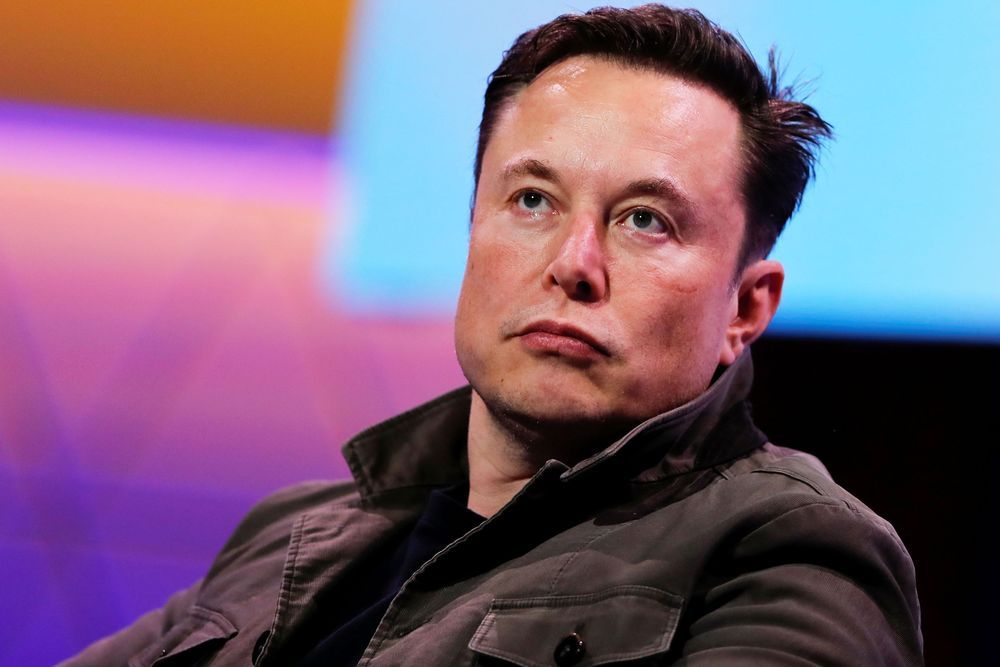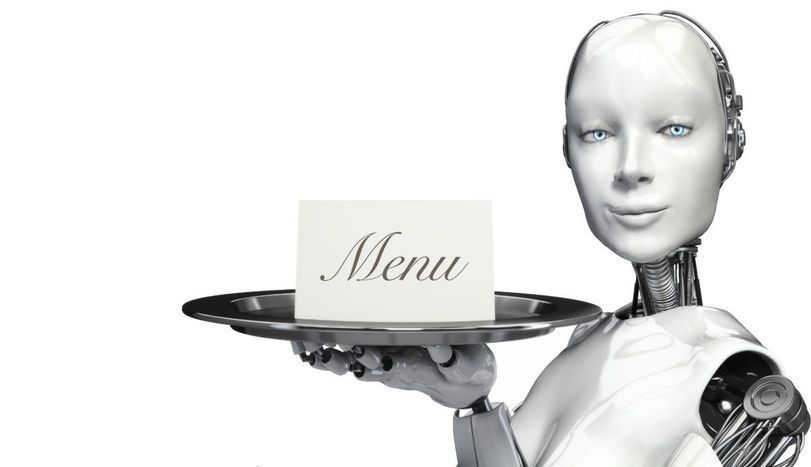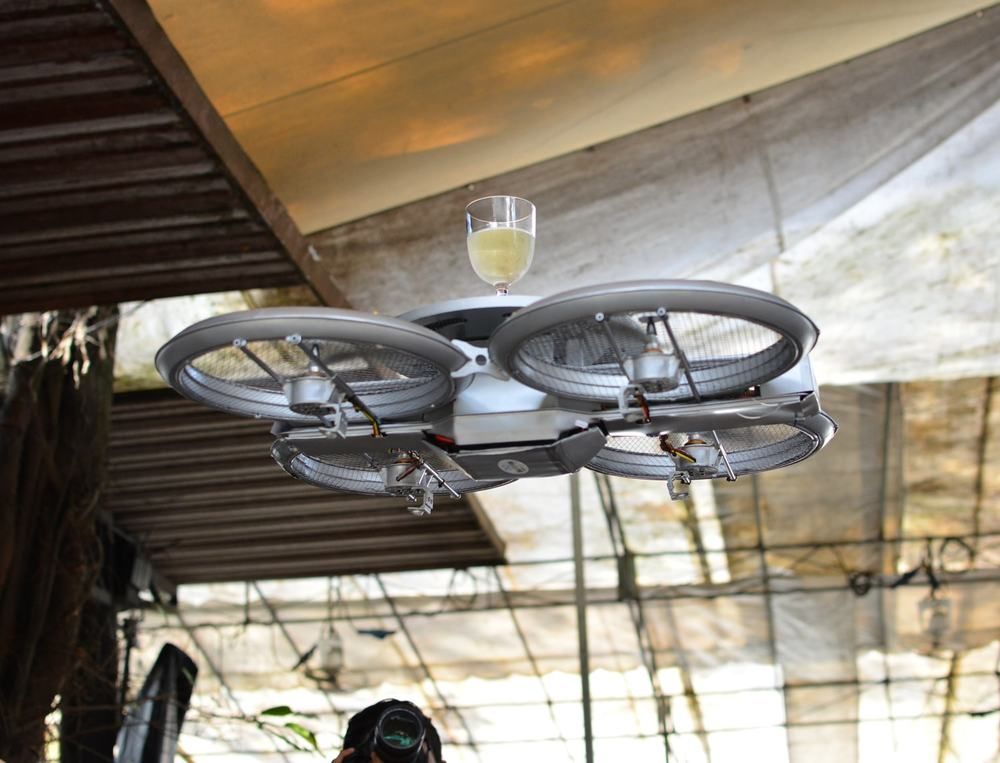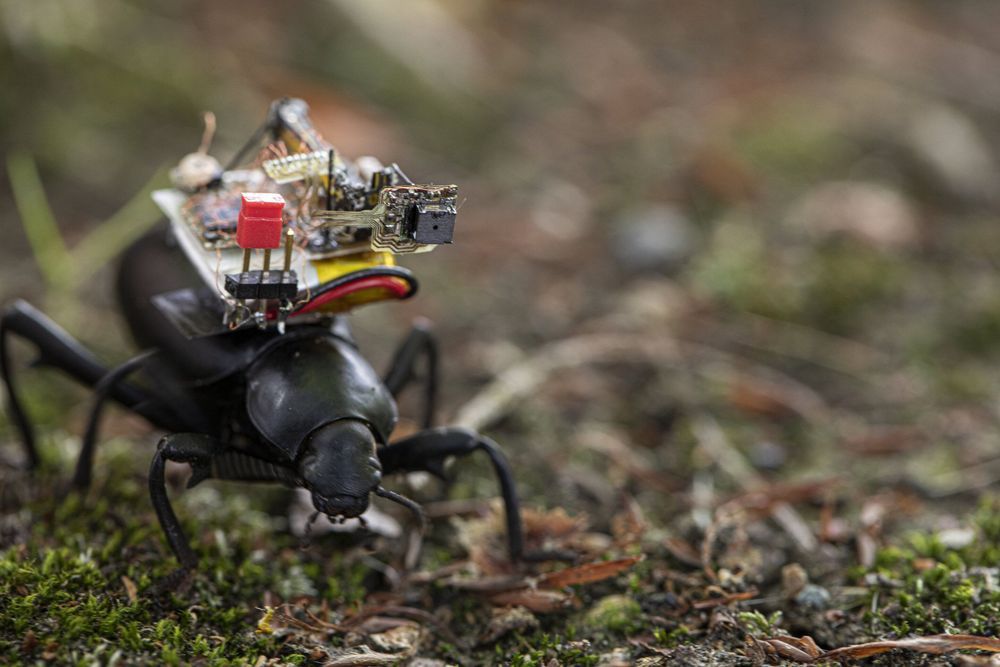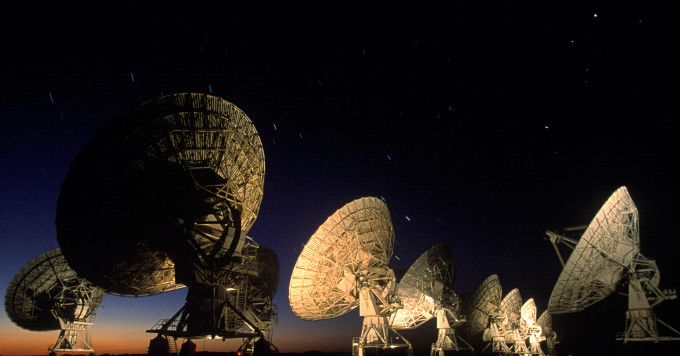Circa 2015
A nighttime shot shows some of the antennas of the Owens Valley Long Wavelength Array in California, with the center of our galaxy in the background. (Credit: Gregg Hallinan)
The Owens Valley Long Wavelength Array (OV-LWA) is already producing unprecedented videos of the radio sky. Astronomers hope that it will help them piece together a more complete picture of the early universe and learn about extrasolar space weather—the interaction between nearby stars and their orbiting planets.
